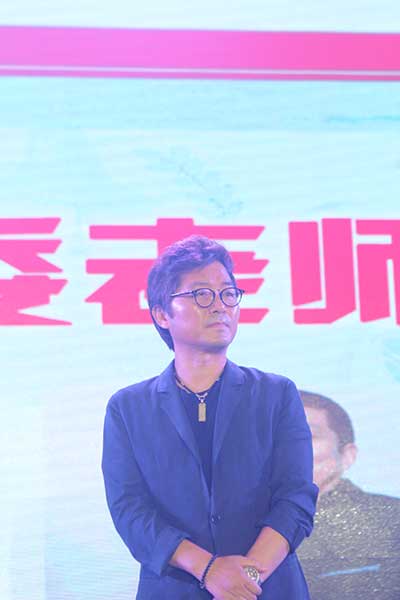
A festival of short films by Chinese and South Korean filmmakers on the theme "share your dreams" kicked off in Dachang county, Hebei province, last week.
It is the annual show's second edition that is co-hosted by South Korean entertainment giant CJ E&M and the Chinese People's Association for Friendship with Foreign Countries.
Forty-two films made it to the competition section from an entry list of about 570 films, each not more than 30 minutes in duration. The winners, to be announced at the end of the festival on Saturday, will get a cash award of up to 20,000 yuan ($3,130) and training in a few film studios of South Korea.
"I didn't expect short films to cover so many social issues," says Kang Je-gyu, a veteran Korean director, who is on this year's festival jury.
He is globally renowned for directing the Korean wartime epic Taegukgi: The Brotherhood of War.
Huang Jianxin, a director and deputy head of the China Film Association, considers short films the "necessary" step to becoming a good filmmaker.
"Within 30 minutes, you can only focus on one theme, which is the prototype of genre films. Today's filmmakers often want to include too many things into their works, but cinematic classics are always genre films," says Huang, encouraging young filmmakers to stay focused on one idea at one time.
Nevertheless, the festival is more than a newbie's party. It is also an occasion for established Chinese and Korean filmmakers to get together to exchange notes and find potential projects.
Kang, for instance, has two ongoing projects with Chinese studios, but he doesn't reveal details at the festival. He also says that no matter how much film industries in Asia learn about Hollywood's advanced filmmaking, the "spirit" of their respective countries is usually there and ought to be reflected in their films.
According to Kim Dong-ho, former president of the well-known Pusan International Film Festival, China and South Korea are likely to coproduce more films in the future. European and American filmmakers have helped themselves to coproduction ventures with the result that their markets have widely expanded.
China has many cultural and historical stories to tell, which are suitable for adaptation into cinema, he says, adding that South Korea's smart postproduction infrastructure could help.
The festival follows a 2014 agreement between the two countries to enhance cultural ties.
